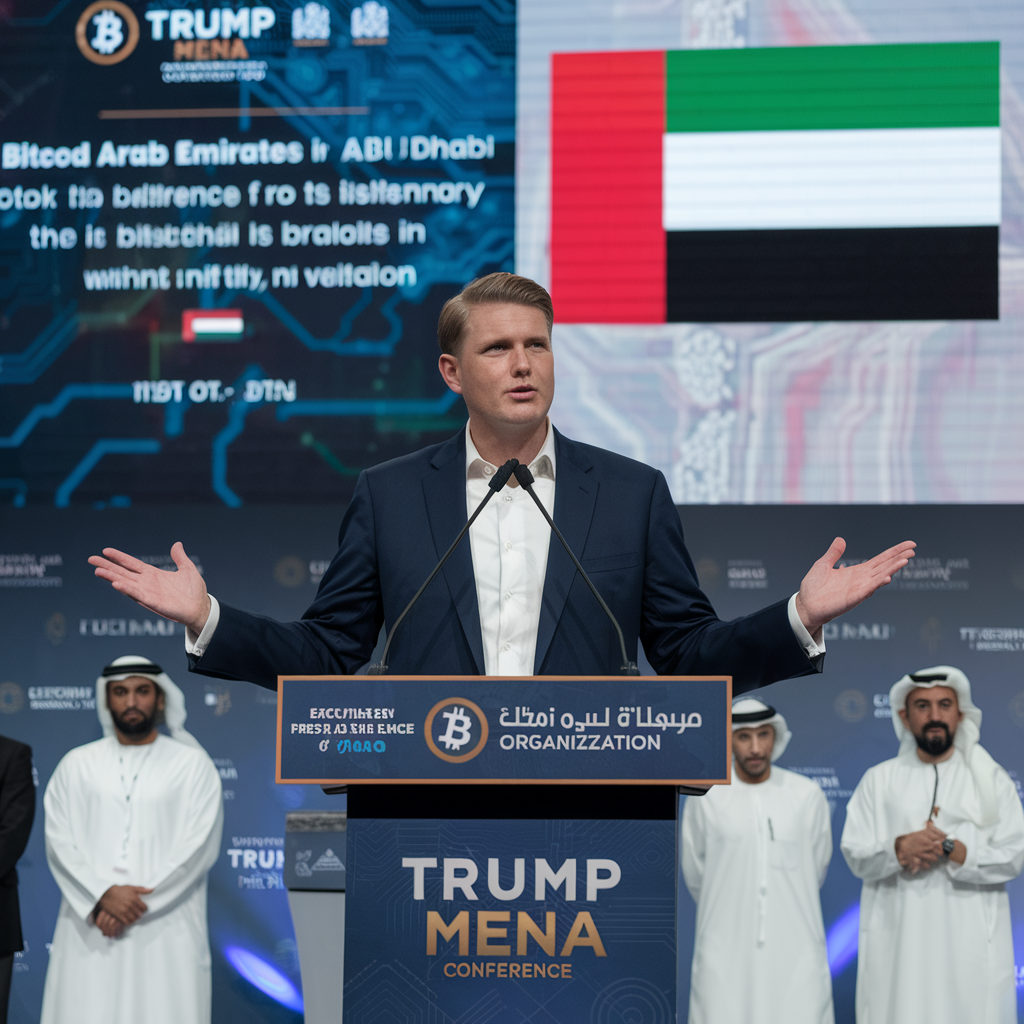Eric Trump, executive vice president of the Trump Organization, recently praised the United Arab Emirates for its visionary role in blockchain innovation during the Bitcoin MENA conference in Abu Dhabi. The event drew key figures from the crypto world, finance sectors, and policymakers as they discussed the future of digital finance. However, the conference also spotlighted controversies surrounding certain blockchain platforms and their global applications.
The Growing Popularity of Blockchain Technology
Blockchain technology is gaining momentum worldwide due to its low-cost, secure, and efficient systems. Tron, a blockchain network with ultra-low transaction fees, has emerged as a popular choice for those living in impoverished or conflict-stricken areas. Its flexibility enables people to make transactions that would otherwise be impossible within conventional financial systems.
For example, in Gaza, where infrastructure is shattered and the economy struggles to function, cryptocurrencies provide a lifeline. Stablecoins such as Tether (USDT) on Tron are widely used by everyday citizens to buy essential goods, bypassing the challenges of traditional banking.
Addressing Misconceptions About Blockchain Use in Conflict Zones
Critics allege that Tron has facilitated illicit transactions involving groups in the region. However, experts highlight that these accusations fail to reflect the broader picture. The reality is that millions of people use blockchain technology, not for illicit purposes, but as a means of survival in the face of extreme poverty and economic hardship.
If Tron’s network were shut down, these individuals would simply migrate to other low-cost blockchains, such as Solana or Polygon. Suggesting that the platform itself is inherently tied to criminal activity oversimplifies the issue and risks punishing ordinary people who rely on these networks for basic needs.
UAE’s Crypto Vision: A Beacon of Innovation
The UAE has positioned itself as a global leader in the blockchain space, offering clear regulatory frameworks and incentives for businesses. Through institutions like the Virtual Assets Regulatory Authority (VARA), the UAE enforces strict anti-money laundering (AML) and counter-terrorism financing (CTF) standards. These measures have been instrumental in attracting international firms while maintaining transparency.
Eric Trump lauded these efforts, describing blockchain as a “game-changer” for finance. He also predicted Bitcoin’s potential to become a leading global asset, sparking enthusiasm among attendees.
The Role of Stablecoins in Everyday Transactions
Stablecoins—cryptocurrencies pegged to fiat currencies like the US dollar—are gaining traction as tools for everyday transactions. In the UAE, they have been integrated into routine life, from purchasing real estate to smaller-scale retail transactions. With their stability and ease of use, stablecoins bridge the gap between traditional and digital finance.
The UAE’s proactive approach is setting the standard for how nations can effectively manage the transition to a blockchain-enabled economy.
Ethics and Accountability in Crypto Ventures
World Liberty Financial Inc., a crypto venture tied to Eric Trump, recently secured a $30 million investment from Tron. Critics have raised concerns about the potential for conflicts of interest, especially given the venture’s connection to influential figures in the incoming US administration.
Ethics experts argue that such arrangements require strict oversight to ensure transparency and avoid misuse of power. While some point to Tron’s alleged misuse in conflict zones, broader systemic issues—such as unregulated crypto wallets—require collective international action.
The Bigger Picture in Blockchain Policy
The controversies surrounding Tron and other platforms underscore the importance of balanced, evidence-based discussions about blockchain regulation. Isolated accusations should not overshadow the technology’s transformative potential for financial inclusion, particularly in regions where traditional systems have failed.
Conclusion
Blockchain technology holds incredible promise, from fostering financial inclusion to enabling seamless cross-border transactions. However, as its adoption grows, so do the responsibilities of regulators, developers, and policymakers to address ethical and security concerns.
The UAE’s success in nurturing a blockchain-friendly environment serves as an example of how clear rules and innovation can coexist. Going forward, global collaboration and nuanced policies will be key to unlocking blockchain’s full potential while addressing legitimate concerns.

